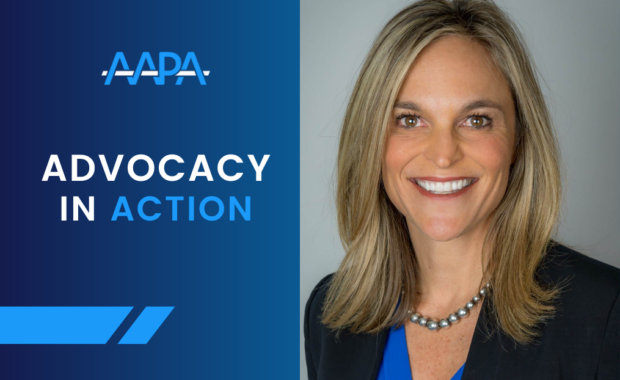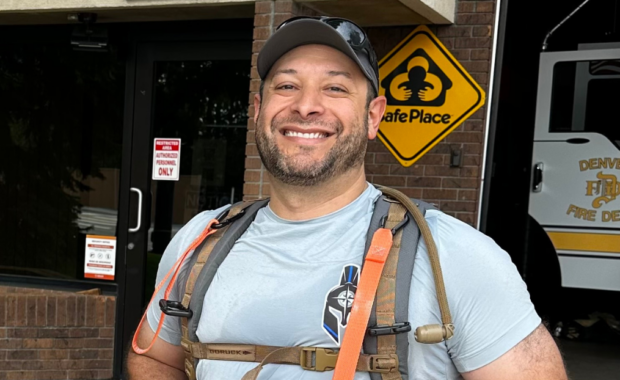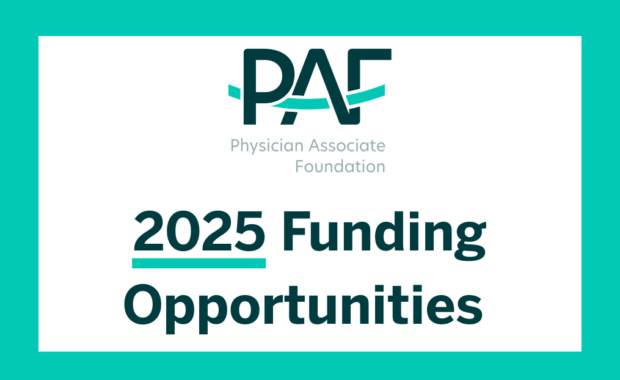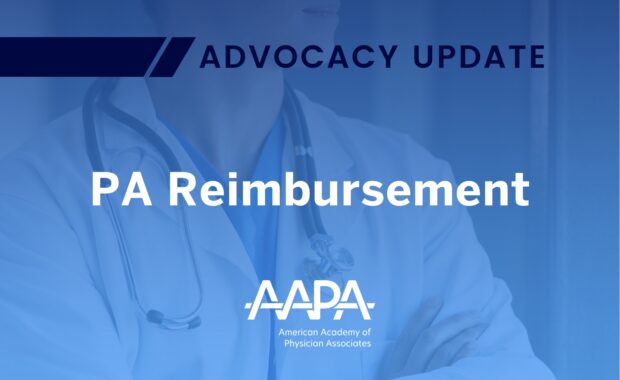PA Educators Share Inspiration, Challenges, Rewards
“You Must Have a Passion for Teaching”
October 27, 2023
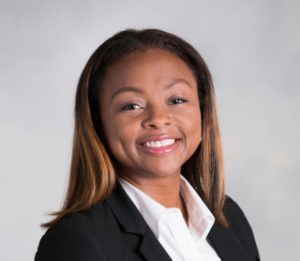
Nicole Burwell
Nicole Burwell, MSHS, PhD, PA-C, DFAAPA, is the founding program director and department chair of North Carolina Agricultural and Technical State University’s PA program. She is passionate about PA education and shares her reasons for getting involved in both the PA profession and academia as well as the rewards and challenges of her career.
[Learn more about PA education with AAPA’s new Areas of Practice Guide.]
Q: What inspired you to become a PA?
A: My godmother was a nurse, and I spent many summers and holidays talking to her about her work and interactions with patients. Her work expanded to include not only clinical care, but teaching and community service. She wanted to help patients, but she also recognized the importance of paving the way for future generations. I thought it was remarkable that as a Black woman, she had such a multifaceted career back in the 1950s and I wanted to emulate that in my own career. The PA profession fit my career goals perfectly.
Q: What inspired you to become a PA educator?
A: My inspiration and motivation for pursuing a career in academic medicine is multifactorial. Teaching is at the core of who we are as clinicians. Being a PA educator is crucial to our mission as PAs to enhance patient health and provide high-quality, patient-centered care. I am also a product of my own instructors and mentors who have inspired me along the way. One of the most important things that fuels me is the critical need for students of color to see someone who looks like them and has faced similar life circumstances. I feel a deep sense of responsibility to not only be a resource but to help train and inspire the next generation of PAs to meet the changing needs of a diverse society.
Q: What advice do you have for other PAs who may be thinking about PA education?
A: Exploring a career in academia is a great way to diversify your skillset and build strong mentoring relationships. Moreover, the impact is exponential. Every time you impact a student, you impact every patient they are going to come in contact with throughout their careers.
[Wherever you want to go in your career, AAPA can help – join or renew your membership today]
Q: What do you find most challenging about being a PA educator?
A: Despite our best intentions to bring a greater awareness to the health disparities that exist, there is still a great deal of work to be done. Having diversity on our medical teams begins with our training programs. My hope is that achieving greater representation will help improve medical education for all students, improve access to care, broaden the scope of medical research, and reduce health disparities.
Q: What do you find most rewarding about being a PA educator?
A: When we choose a career in clinical medicine, we are committing to being lifelong learners. I truly value the intellectual stimulation that comes with working in academic medicine. I am honored to be leading the way in bridging the gap between classroom training and real-world application for our next generation of PAs.
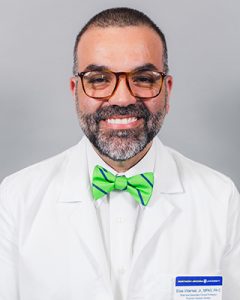
Elias Villarreal, Jr.
Elias Villarreal, Jr., MPAS, DMSc, PA-C, DFAAPA, is the associate dean and founding program director of the University of California, San Diego PA program. Like Burwell, he’s found great reward in being a PA educator.
Q: What inspired you to become a PA?
A: My mom has been a lifelong role model. She is a registered nurse in neonatal ICU. I was on track to be the first-generation college student but she beat me to the finish line. She enrolled in nursing school when I was in high school so I was able to experience what college was like through her. She was a non-traditional student at the time. Biological science and healthcare were always interests of mine at an early age. I was pre-med until I learned that a close family friend was a PA. This was back in 1992 in Texas when PAs were not yet able to prescribe medications. I always thought he was a physician. Then, I found out that my own healthcare providers at the local community health clinic were PAs. Those two experiences opened my mind up to the possibility of a career as a PA.
[Read what other PA educators have to say about their roles]
Q: What inspired you to become a PA educator?
A: To be honest, I never thought I’d be doing the education gig when I was a cocky new PA graduate in the late 90s. Long story short, I fell into it. I made a poor career decision as most 20-somethings sometimes do and quit my first PA job in a huff. I lived on savings for a couple of months until I had to find work. I visited the local PA program, University of Texas Rio Grande Valley (UTRGV) since I had taken my PANCE there and asked where I could find PA work in the local community. The program director, Frank Ambriz, gave me some tips and included a position available at the PA program as a part-time faculty member to take over the surgical curriculum for the summer. It was supposed to be a two-month gig. He said that if I liked it, I had the option of applying for the full-time position after the two-month temporary/emergency hire. Almost 25 years later, I’m now a program director. I went on to work for UTRGV for 20 years before I transitioned to lead the PA program at Northern Arizona University.
Q: What advice do you have for other PAs who may be thinking about PA education?
A: I have to be as transparent as I can be with this answer. To thrive and flourish in PA education, you must have a passion for teaching. I didn’t know I had this passion until I started doing it. Get your feet wet with actual teaching at a program to see if it’s a fit. Precepting students at a clinic is not the same thing as teaching in a PA program. Anyone interested in the field should be aware of that. PA educators do not earn the same income as practicing PAs and, in many cases, educators make a lot less money for a lot more work. It’s the nature of education. A passion for the work is necessary. I do this work and continue to do so because I am passionate about it and I am rewarded with gratitude, respect, and the appreciation of every student I’ve ever had a hand in training. An educator has to be content with that on most days.
[What Makes a Good PA Professor? These 7 Ps]
Q: What do you find most challenging about being a PA educator?
A: There are many challenges as an educator. Which is the most challenging? It’s difficult to rank the challenges. For me personally, I struggle with racism and discrimination. It does exist in medicine and in PA education. Working to break down barriers for students of color has been my life’s work as an educator. As a person of color myself, I have found it personally difficult to understand the racist and discriminatory points of view that we are told to have to respect because everyone is “entitled to an opinion.” From refusing to see certain kinds of patients to refusing to admit certain kinds of students to PA programs, I have witnessed it all and some of it I have witnessed and suffered personally. That is currently the most challenging part of my professional career.
Q: What do you find most rewarding about being a PA educator?
A: The reward is in the feeling of making a difference not just in patients’ lives but in people’s lives, their careers, their family’s ability to put food on the table, etc. I have had the privilege and honor to help educate some of the most impoverished students in this country. From students who lived in colonias with dirt floors, no running water, and one electric socket to those who crossed the international bridge every day to attend class before returning to Mexico all in hopes of a better life after graduation…I’ve taught them. To witness the growth, the success, and the resilience of every one of these students to literally start from a dirt floor and then go on to purchase their first home in a nice part of town warms my heart every day. That is the most rewarding feeling.
Nicole Burwell, MSHS, PhD, PA-C, DFAAPA, is the founding program director and department chair of North Carolina Agricultural and Technical State University’s PA program. She can be reached at [email protected].
Elias Villarreal, Jr., MPAS, DMSc, PA-C, DFAAPA, is the associate dean and founding program director of the University of California, San Diego PA program. He can be reached at [email protected].
Editor’s Note: This article was originally published in May 2021.
You May Also Like
Areas of Practice Guide – Education
What Makes a Good PA Professor? These 7 Ps
Advocating for Health Equity: PA Focuses Work on HIV and LGBT Health
Diversity, Equity, and Inclusion Resource Center
Thank you for reading AAPA’s News Central
You have 2 articles left this month. Create a free account to read more stories, or become a member for more access to exclusive benefits! Already have an account? Log in.
